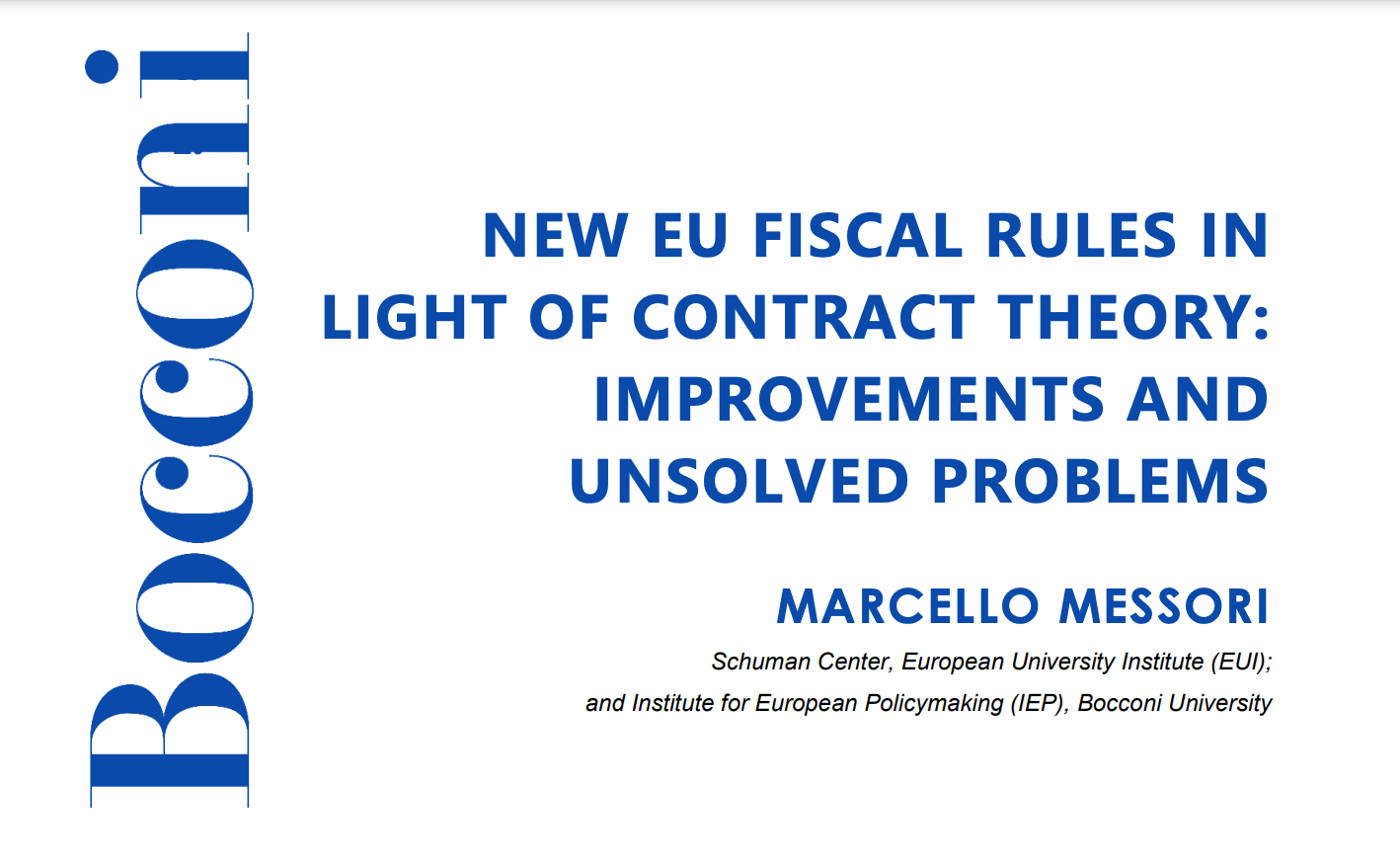Policy Brief n.7 - New EU Fiscal Rules in Light of Contract Theory: Improvements and Unsolved Problems
The Council of the European Union (EU Council) agreed on a provisional set of new fiscal rules in its meeting on December 20, 2023, that introduces significant changes to the Commission’s proposals. The fiscal reform marks progress but is, at the same time, a lost opportunity.

The revision of the old Stability and Growth Pact (SGP), elaborated in the period 2005-2013 and subject to a general escape clause during the years 2020-2023, triggered a long debate in 2021 and 2022. The European Commission tried to synthesize this debate by elaborating a Communication in November 2022, followed by a normative scheme in April 2023. Finally, the Council of the European Union (EU Council) agreed on a provisional set of new fiscal rules in its meeting on December 20, 2023, that introduces significant changes to the Commission’s proposals. A part of these new rules must still be submitted to the co-decision of the European Parliament; another part will involve the Parliament in a mere consultancy role. In both cases, it is unlikely that the related trialogue, with the involvement of the Commission, can determine substantial changes to the results achieved by the EU Council.
There were two main innovations in the Commission’s approach to the SGP. The first was the national ownership of the adjustments aimed at making the public balance sheet of each member state sustainable and compatible with economic growth in the medium-long term. The second innovation was the required compliance of these adjustments with a small number of quantitative indicators and the related elimination of that set of complex quantitative constraints which were included in the old fiscal rules (mainly since 2011) but which were poorly enforced.
The compromise reached a few days before the end of 2023 weakens the latter innovation because it reintroduces many quantitative constraints that partially bring the new fiscal rules back into the methodological context of the old SGP. The crucial and unresolved issue is the possible impact of these additional constraints on the national incentives to manage public debt sustainability through a well-balanced combination of fiscal adjustments and efficient investments and reforms for growth.
To compare the different steps in the evolution of the EU fiscal rules, this paper refers to a specific theoretical key: the 2005-2013 SGP, the Commission’s proposal, and the new fiscal rules are analyzed in terms of the principal-agent literature focusing on mechanism designs. The thesis is that: (i) the design of the SGP is based on several quantitative indicators that do not include any binding incentive constraint so that the principal (i.e., the European Commission) imposes a set of fiscal rules on the agents but is unable to induce each of these agents (a member state, specifically with significant fiscal disequilibria) to be ex-post compliant with the commitment imposed ex ante; (ii) the Commission’s proposals define few quantitative indicators that are compatible with a binding incentive constraint because member states exercise the national ownership in defining their specific fiscal plans and in selecting the most appropriate national combination between public debt sustainability and economic growth; (iii) the new fiscal rules add quantitative safeguards to the Commission’s scheme that can become too demanding for EU countries with significant fiscal disequilibria and that can, thus, interfere with the binding incentive constraints.
These three points show that, compared to the old SGP, the adoption of the new fiscal rules would decrease the risk of causing systematic ex-post withdrawals of the member states from their ex-ante commitments. However, the opposite holds for the Commission’s proposal of April 2023. In this latter case, the new fiscal rules weaken the effectiveness of the binding incentive constraints introduced by the Commission. This conclusion justifies the statement that the fiscal reform marks progress but is, at the same time, a lost opportunity.

Please, join us online on February 14, 15.30. With Marcello Messori and Lucrezia Reichlin
IEP@BU does not express opinions of its own. The opinions expressed in this publication are those of the authors. Any errors or omissions are the responsibility of the authors.
